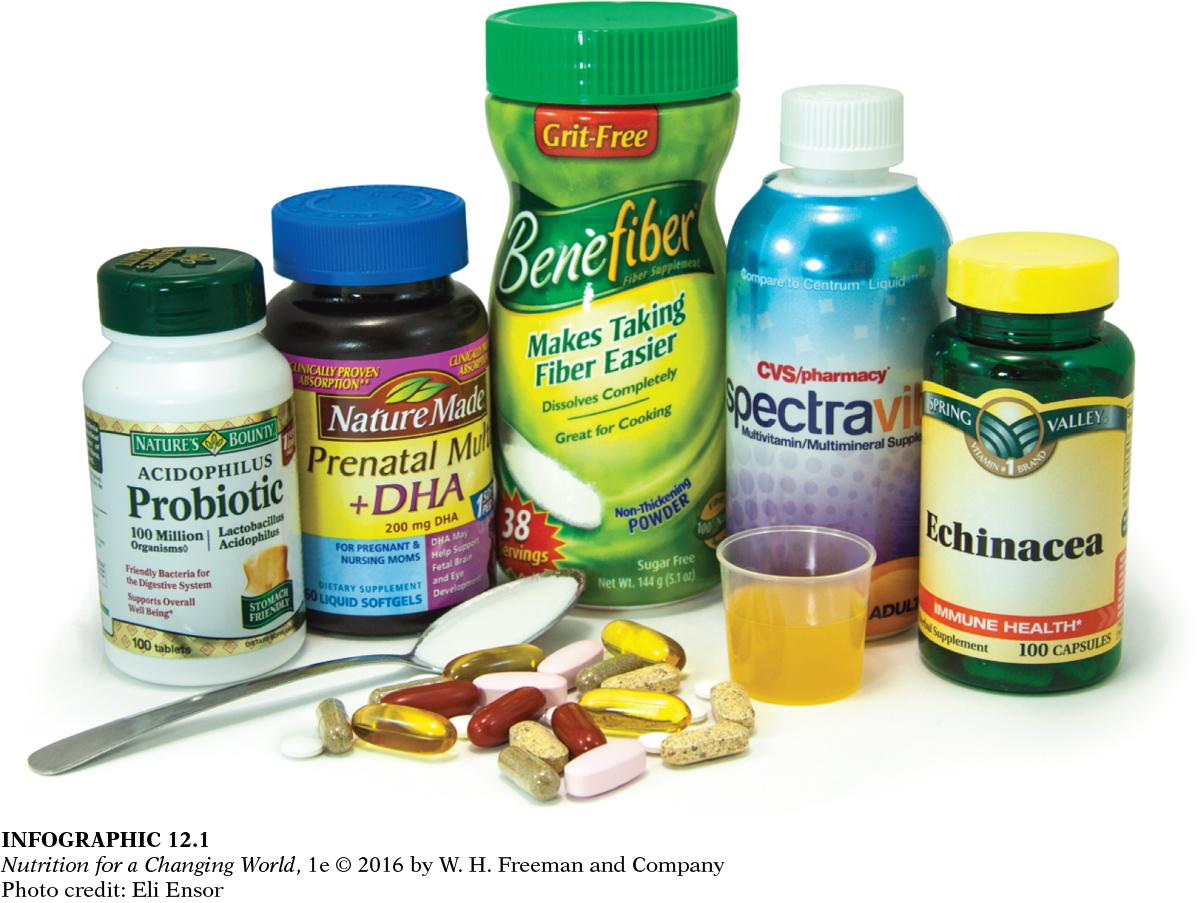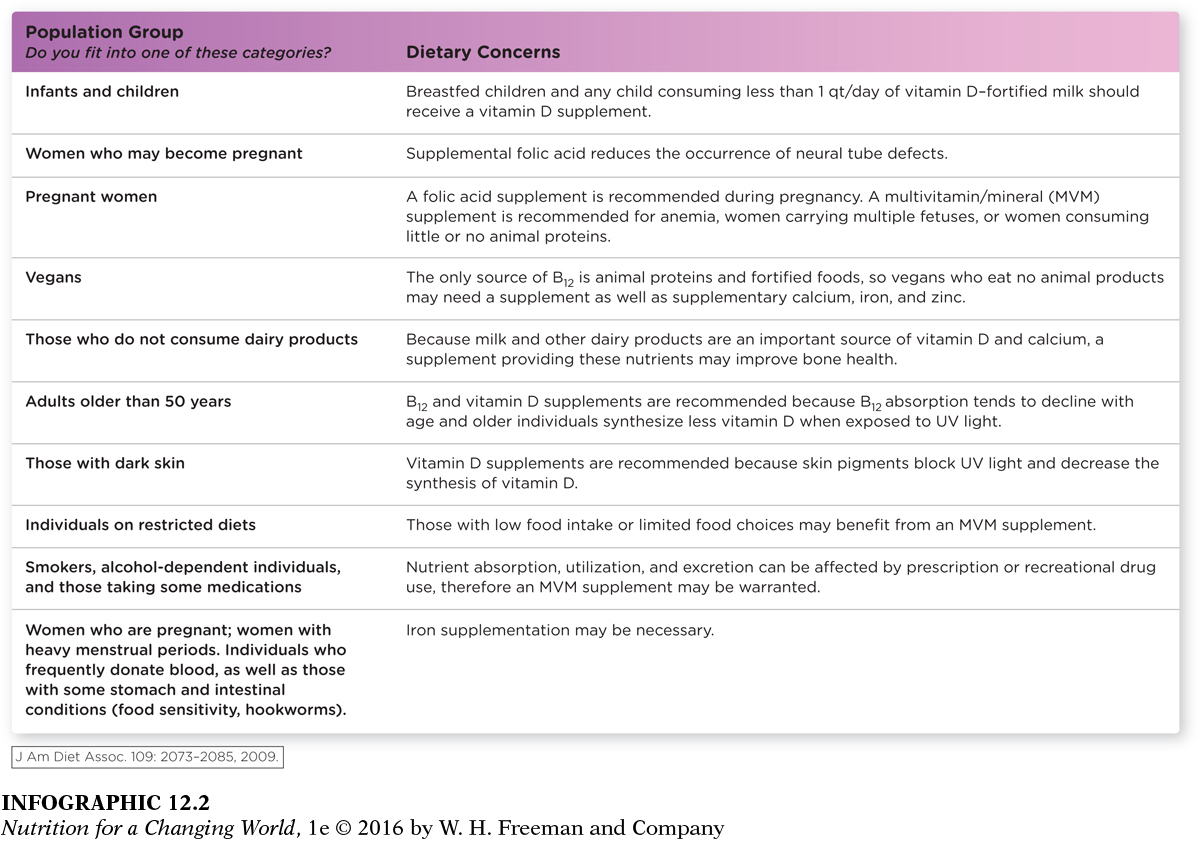WHAT ARE DIETARY SUPPLEMENTS?
DIETARY SUPPLEMENT a food or substance that supplements the diet and contains one or more dietary ingredients (including vitamins, minerals, herbs, amino acids, and certain other substances) or their constituents
Dietary supplements can come in the form of pills, capsules, tablets, liquids, powders, and bars. This diverse array of products are grouped together and called “dietary supplements” because they are regulated by a common set of rules. As defined by Congress in the 1994 Dietary Supplement Health and Education Act (DSHEA), dietary supplements are intended to be taken by mouth and contain one or more dietary ingredients or their constituents: vitamins; minerals; herbs or other botanicals; amino acids; or other dietary substances, such as enzymes. Essentially any substance that is found in any food, even if present only in minute quantities, can be extracted or concentrated and then sold as a dietary supplement. Therefore, these substances are often being consumed at levels far exceeding those ever achieved from the intake of foods. (INFOGRAPHIC 12.1)


Who benefits from taking supplements?
For the average person, the Academy of Nutrition and Dietetics recommends that the best nutrition-

Question 12.1
 Identify at least three underlying reasons why supplements might be necessary in these circumstances.
Identify at least three underlying reasons why supplements might be necessary in these circumstances.
Answers may include: Pregnant women are recommended to take a folic acid supplement to prevent neural tube birth defects. They may also need to take iron supplements because their body will need to create and maintain a higher volume of blood. Individuals who regularly donate blood may need iron supplements to compensate for blood loss. Infants who are breastfed may need a vitamin D supplement because breast milk contains insufficient vitamin D, and supplements are preferable to sun exposure for gaining sufficient vitamin D. Individuals consuming a vegan diet need to consume vitamin B12 from fortified foods or supplements because animal products are the only natural sources of vitamin B12 in our diets.